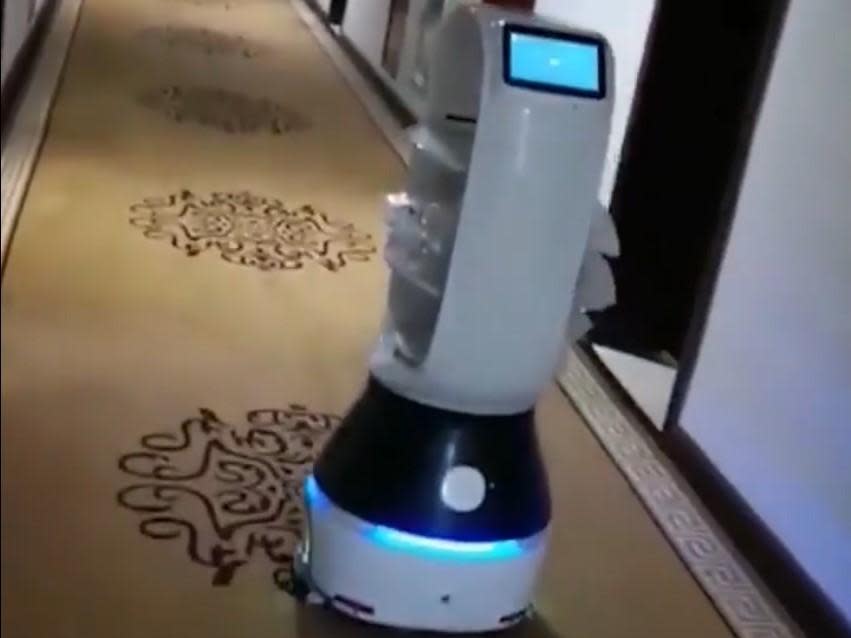Coronavirus pandemic could prove 'tipping point' for robots looking after humans, scientists and experts say

The development of robots to save lives and reduce human exposure to the Covid-19 coronavirus outbreak could lead to a new era of robotic human helpers, researchers have said.
Robotics professor Henrik Christensen from the University of California San Diego, was among a group of leading experts who outlined how robots could be used to combat the coronavirus pandemic by doing the "dull, dirty and dangerous" jobs.
"Already, we have seen robots being deployed for disinfection, delivering medications and food, measuring vital signs, and assisting border controls," the scientists wrote in an editorial in the journal Science Robotics.
"Opportunities lie in intelligent navigation and detection of high-risk, high-touch areas, combined with other preventative measures. New generations of large, small, micro, and swarm robots that are able to continuously work and clean could be developed."
The researchers suggested Covid-19 could drive sustained research in robots, artificial intelligence (AI) and drones to address the risks of infectious diseases and potentially provide the "tipping point" for how organisations operate in the future.
"Without a sustainable approach to research and evaluation, history will repeat itself, and technology robots will not be ready to assist for the next incident," they wrote.
Countries around the world have already begun enlisting robots in a variety of roles to reduce human exposure to the deadly virus.
A hotel in China, where coronavirus originated, was one of the first to make use of robots, employing a machine called 'Little Peanut' to deliver food to people placed under quarantine.
In Spain, a fleet of robots is being prepared to assist with the country's coronavirus testing, which could boost the country's capacity to 80,000 tests per day.
Delivery drones are also under development by companies like Amazon and UPS, which would reduce the need for human contact.
The researchers said more needs to be done to fund and develop robotic and AI applications that would help in responding to epidemics and pandemics.
"The experience with the 2015 Ebola outbreak identified a broad spectrum of use cases, but funding for multidisciplinary research, in partnership with agencies and industry, to meet these use cases remains expensive, rare and directed to other applications," the researchers wrote.
"Without a sustainable approach to research, history will repeat itself, and robots will not be ready for the next incident."
Read more
How to help the elderly and vulnerable during the coronavirus
How to feel less anxious about the coronavirus
How to be productive when working from home during coronavirus

 Yahoo Finance
Yahoo Finance 